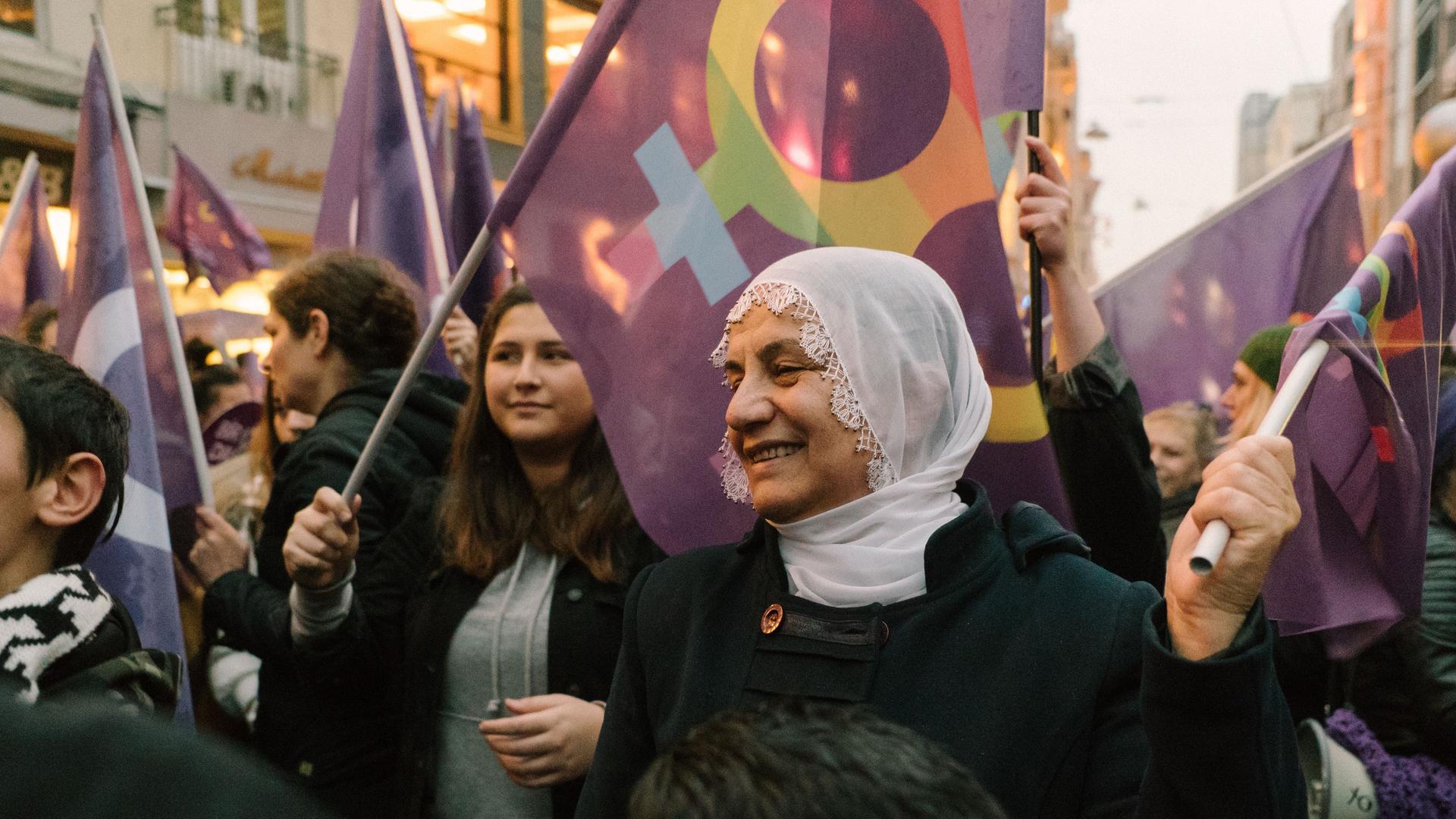‘We’re not scared’: Thousands of women march despite crackdown on protests in Turkey
Many of the women at the march carried purple flags bearing a clenched fist — the symbol of feminism in Turkey.
The crowd was a sea of purple and rainbows. It was a rainy, cold night, but that did not stop thousands — mainly women — from gathering in the center of Istanbul on Thursday for the International Women's Day march. Women wore witch hats and carried flashy umbrellas and violet-colored flags bearing a clenched fist — the symbol of feminism in Turkey.
“Women, life, freedom,” the crowd chanted. Some demonstrators held signs protesting violence against women. Others clutched posters calling for sexual freedom or poking fun at the government while the streets off of Istanbul’s main avenue, Istiklal, were packed shoulder to shoulder. There were older women and many younger women in the mix, plus plenty of laughter, dancing and music.
In Turkey, a protest of this size is rare. The throngs defied a harsh crackdown on protests and public gatherings; in past years, women have been attacked by mobs of men and dispersed by police with rubber bullets when they turned out for the event. But activists here and elsewhere in the country proved they are still taking to the streets despite the cold, potential police violence and political exhaustion.
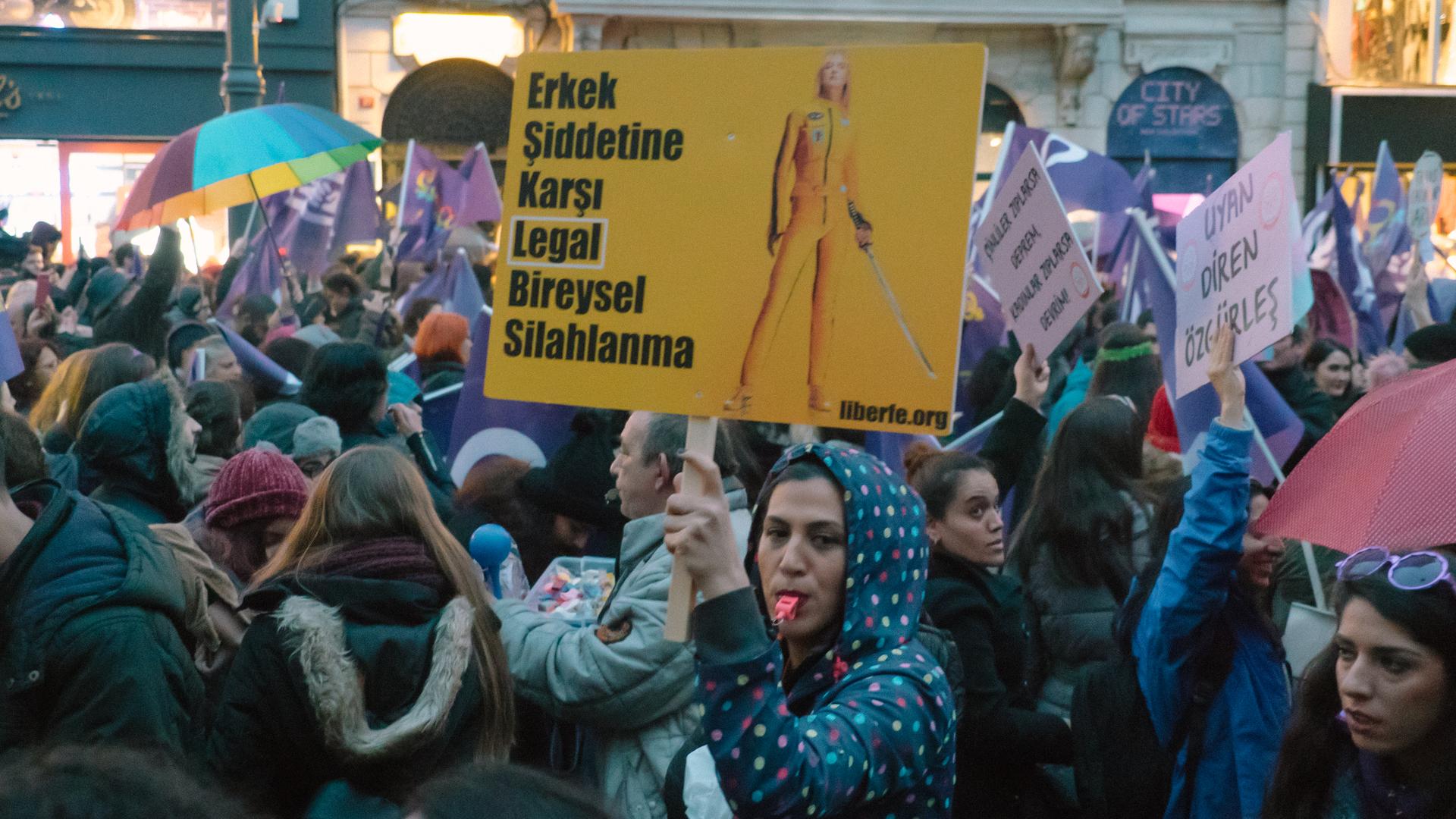
Alara, a 24-year-old philosophy student who didn't want her full name used, for security reasons, has been a political activist since high school. She went to her first protest when she was 15 years old. It was a gay pride march; she remembers watching as people danced and so many bright colors. “We were drinking, we were shouting and there was a very huge rainbow flag,” she says. “It was exciting.”
Today, that wouldn’t be possible. The government has banned gay pride events for the past three years in Istanbul. When activists and marchers showed up anyway, they were met by police with tear gas and rubber bullets.
Related: Award-winning Turkish writer free to travel again
Since an attempted coup in 2016, the Turkish government has cracked down on opposition, civil society and minorities. At least 50,000 people have been arrested over the past two years and hundreds of civil society organizations shuttered. Multiple protests have been banned, dispersed or both, as Turkey President Recep Tayyip Erdoğan has tightened his reins on power.
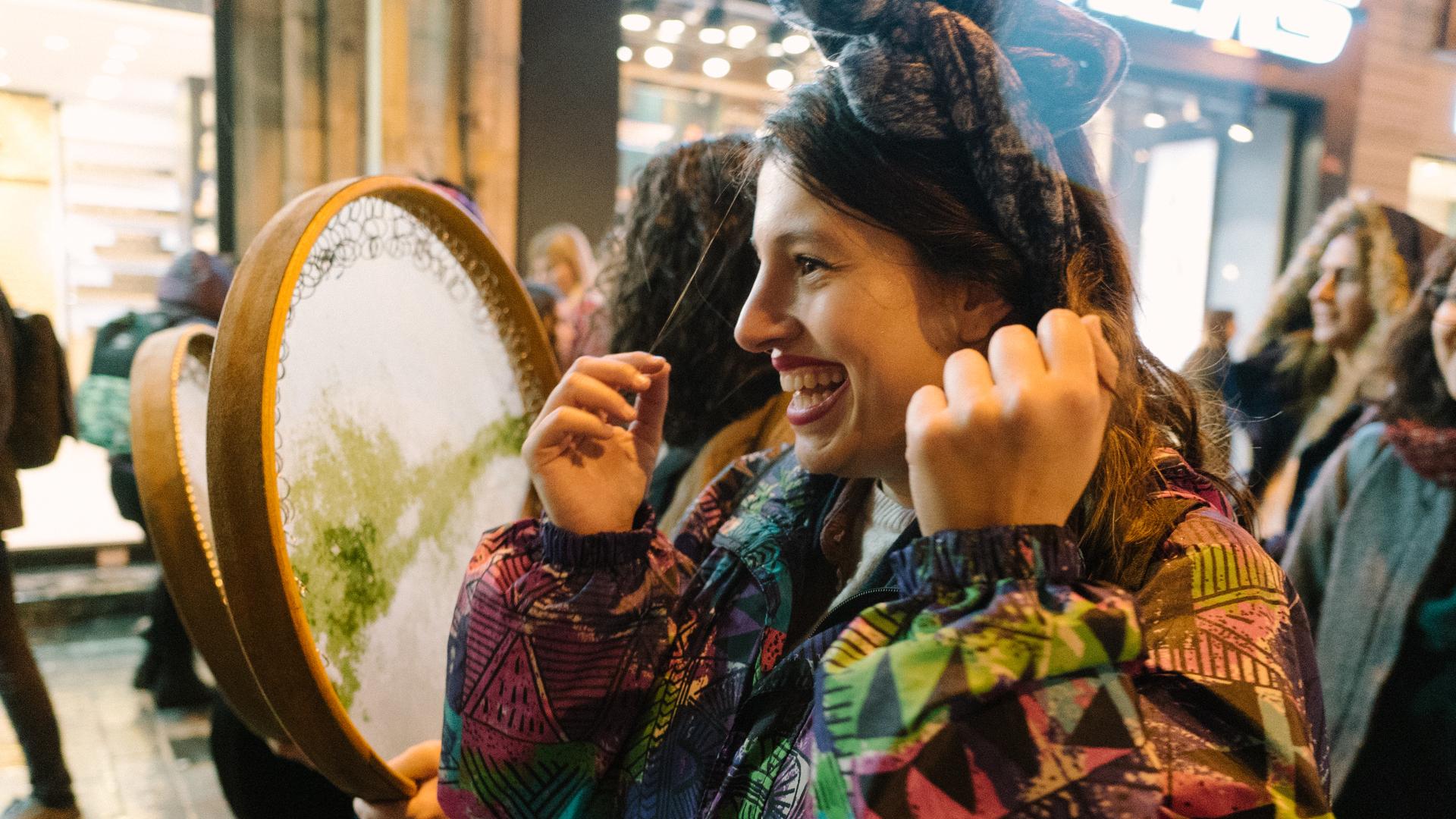
“It [the protest] shows that we are still here … even though the murders, even though the war, we are still here, and we continue to resist. Because it’s the only thing we can do,” Alara says.
“Every other thing is banned,” she added. “It’s the only thing we have.”
The purge of rights organizations is one of a number of issues facing women in Turkey. Violence against women is high. The numbers of women killed have been in the hundreds for the past three years, according to the Kadın Cinayetlerini Durduracağız Platformu (We Will Stop Femicide Platform). This year, 47 women were killed in the month of February alone, while 409 women were slain in 2017.
Özden Öz, a member of the We Will Stop Femicide Platform, says that while the laws protecting women against violence are good, they are often not applied. “Women go to the police for violence but the police do not give protection to women because for them it is not a problem. It’s extra work for them,” she says.
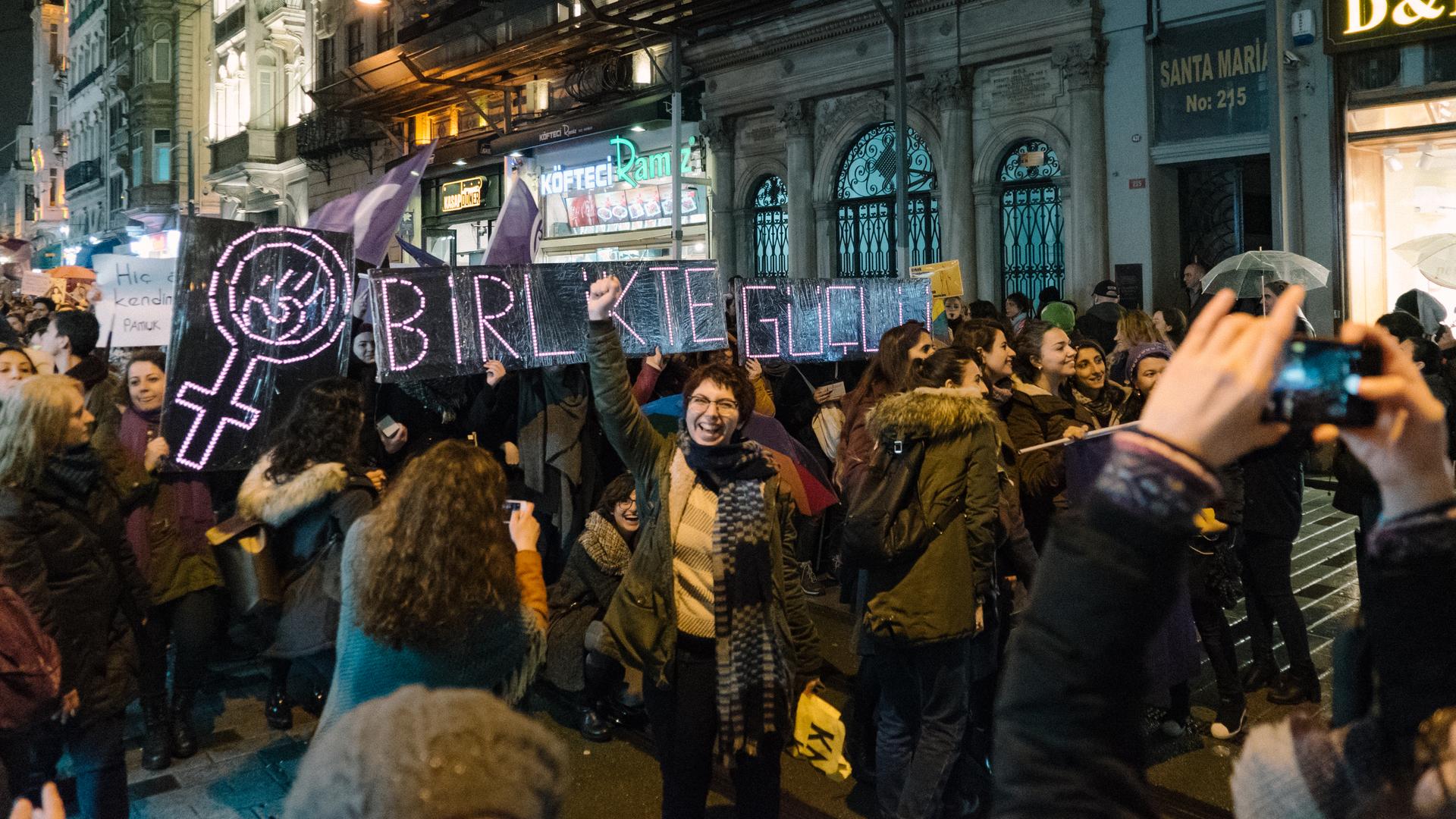
Jenny White, a writer and anthropologist who has studied gender in Turkey for decades, says that part of the reason violence against women remains so high here is that “Erdoğan and his ministers have spoken out in favor of very conservative norms that are not really legal situations,” adding, “Like women shouldn't laugh, women shouldn't do this, women shouldn't do that, women’s place is in the home and so on. They speak out about these things, which normalizes them and gives peoples a sense of impunity.”
Erdoğan has stated that “women are not equal to men.” He marked the last International Women’s day by saying, “A woman is beyond all else a mother.”
In this context, it is very difficult for activists like Alara to have hope. “In the last years, the misogyny has become harder,” she says. “Sometimes, I think we are going back. It was never good, but it's getting worse.”
But events like the march give her strength, even in the face of what, at times, seems like impossible odds. Having walked in solidarity with others in the march, “I feel strong,” she says. “And I feel that I can do anything with this strength.”
She is not alone. The march was full of young people like her: university students and high school students, who had faith that the march would sow seeds that would change the future. “Every year, our number is getting higher and higher,” says Dılşa Ritsa, a 20-year-old university student. “I know a lot of people, a lot of young women, who are really excited for this march who are really writing their own posters and coming here. Not all of them might call themselves 'feminists,' but they are here and marching for their rights.”
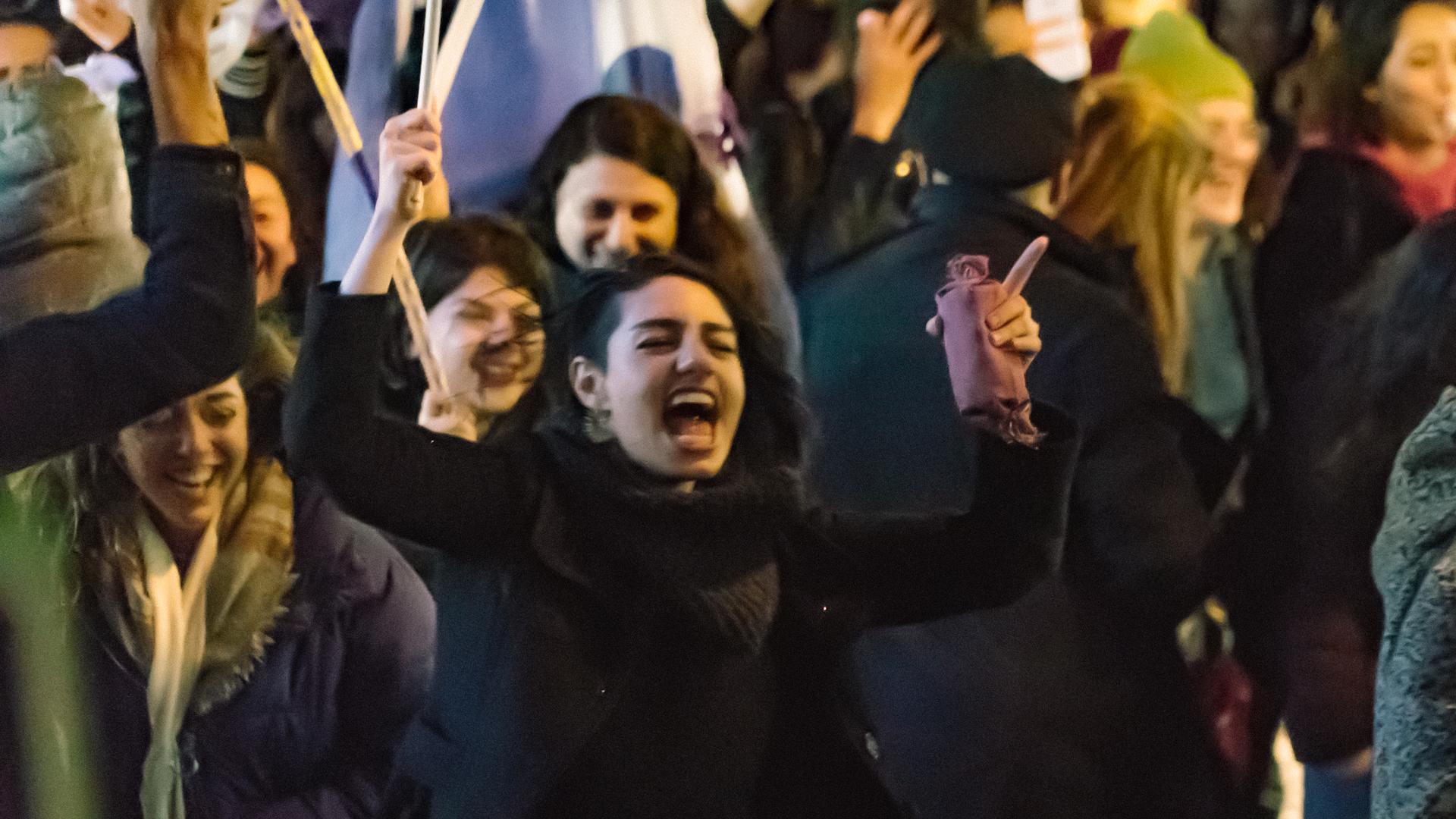
Ritsa held a megaphone in one hand and shouted slogans like, “We won’t be quiet, we’re not scared and we won’t obey.” Police lined Istiklal avenue but Ritsa, not intimidated, was there from the beginning of the march to the end, megaphone on her hip and speaker in hand, her face illuminated by the light on her microphone.
The crowd was full of people like Ritsa. A marching band led by a woman in a gold trench coat set the beat of the march; a young woman with blue hair played the drums; and others danced around them, their faces smeared in glitter.
But White warns that while the protest allows an opportunity for people to express themselves, it will not necessarily change things in Turkey in the long term. She points out that even though the International Women’s Day march has gone forward for years, it has not resulted in other follow-up protests. It happens once a year; the people gather and then they leave.
This year was no different. Riot police followed the march, while police in red vests stood on the side. After the march ended, police trucks drove through the avenue, quietly, but with the threat of violence if people lingered too long.
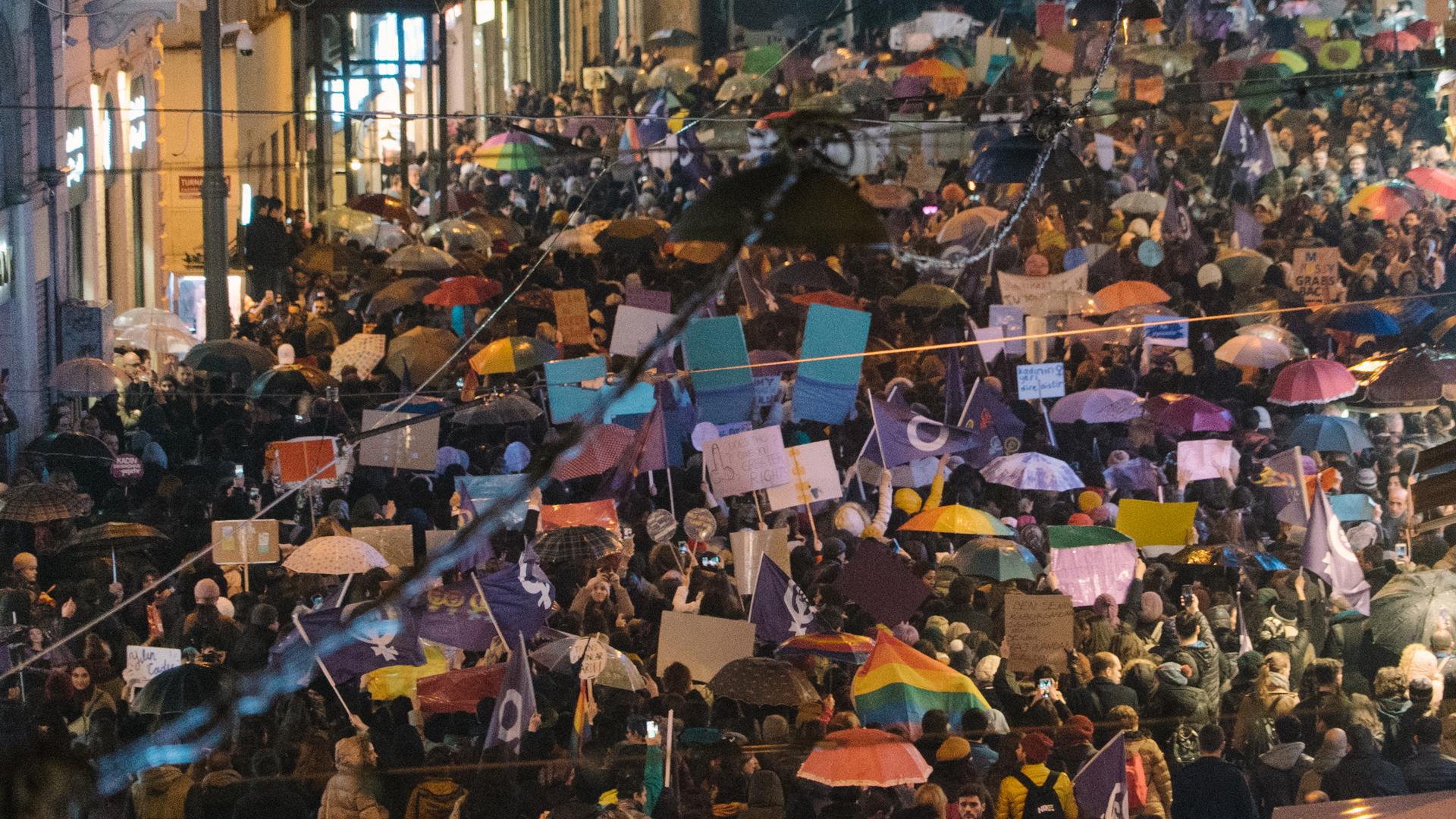
White does not have much belief that the march will create change in Turkey, especially in the current political environment. “What mechanisms exist anymore for having any impact whatsoever on what the state wants to do?” she says. “What power could it possibly have? It allows the people who are doing it to feel like, ‘We’re still here,’ but whether or not it changes anything … I don’t know.”
Alara sees the march differently. She is a part of the queer community. To her, the feminist march is more than just a walk to mark International Women’s Day. It is one of the only places where she can see other queer women occupying public space in large numbers. “I saw the women and LGBT people and even seeing them gave me force,” she says.
After the march, Alara went to a bar in celebration. She laughed and danced in a room filled with women. The group sang, ululated and got energized for the longer fight. “I think that women and LGBT people resist every day,” she says. “The 8th of March is like our celebration day. It’s not just one night, it continues for our whole lives.”
Pesha Magid and Laura Neumann reported from Turkey.
